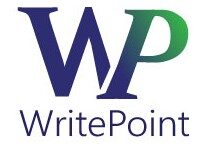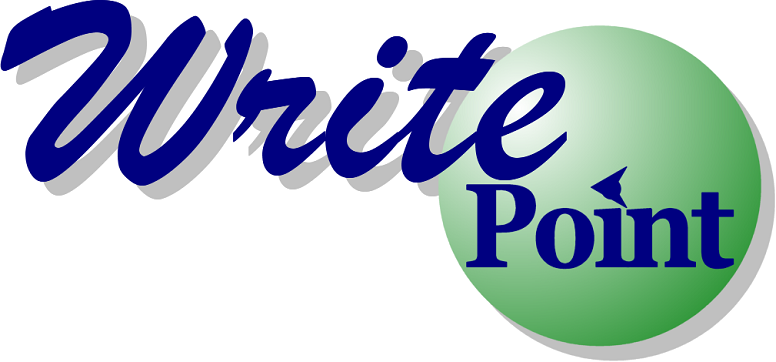One of the things I enjoy doing at WritePoint is helping others find work. It’s fun; it’s exciting; and yes, it can be profitable. Another key word is satisfying. When we began our technical writing courses, more than 6 years ago, the goal was two-fold. We wanted to hire trained technical writers that could be counted on to document hardware and software and we wanted to raise the level of entry-level technical writers in general.
Too often, we were assigning projects to entry-level writers…and then had to assign senior writers to fix the documents before delivery (at our cost). For WritePoint, our first goal was to finally be able to hire trained entry-level technical writers and have the confidence that they were properly trained. Our feedback from many companies has reinforced our belief that we have succeeded in this goal.
Our second goal was to shake the world of technical writing training. We wanted to raise the level of knowledge for incoming writers and this too has been accomplished. Our graduate students enter the field with an unprecedented level of proficiency in Word, FrameMaker, RoboHelp, documenting principles, the use of graphics, editing skills, indexing skills, and so much more.
When we began thinking about the kind of training that would be required to accomplish these goals, we made a list – and in the end, we developed our course. In the first round, it was over 110 hours – approximately 20% longer than most other courses. Today, the course is 150 hours and includes even more!
One of the elements of the course that was included from the start, but has been expanded a bit, is the section on helping our students find employment – tips and rules and suggestions that can help.
I got an email today that made me think of sharing a few of these ideas here. What are the key things you have to keep in mind when you are applying for a job? Well, here are a few:
- Spelling errors: As a documentation manager, if I get an email with a resume attached and as I am reading the email, I see that there are spelling mistakes and/or grammatical errors, I am more likely to delete the post than bother to open the resume. I don’t owe it to anyone to open their resume, especially when it comes unsolicited. It is not an obligation that I have – but rather a choice I make. My feeling is that if you as the sender don’t care enough to proof your own messages, how careful will you be with my projects?
- Cover letters: If I get an email with an attached resume and no text in the message, again, I am more likely to delete it than read it. Why? Quite simple – again, I don’t owe anyone my time. It is mine to give and I choose where to give it. I feel that if you don’t take the time to write to me and tell me something interesting, something that makes me want to review the resume, why should I spend more time reading your resume than you did sending it to me? I heard from someone that another technical writing school tells their students they don’t have to bother writing a cover letter. We had this discussion on Techshoret and all I could say was that it was wrong. If you want me to read your resume, please take the time to tell me why.
- Multiple recipients: Maybe this is just me, but when I see that someone has sent me and about 50 others their resume and a cover letter, I feel no interest in reading it. Again, there is something inside of me that says, “If you can’t take the time to write to me, please don’t expect me to take the time to learn about you.” Why does it bother me? I’m not sure I can explain it clearly enough. I know that even if you send me your resume personally, there is a good chance you are sending it to others. But at the same time, there is that same expectation on your part that I will invest the time to read your message and open your resume. Shouldn’t you at least ask for that time in some personal manner? When you push the other 49 people in the sender field in front of my eyes, the attitude will often be – fine, let them read it.
- Job Criteria Mis-match: If you don’t have the qualifications that I seek, please save my time and tell me. It bothers me to read a generic email post that references my job post and requests me to see the resume and then, when I do, I find that you have completely ignored my post explaining the skills I need. There is a reason why I write that I want a senior technical writer, for example. And, if I do, no, I am not interested at this time in receiving an email from someone who has no training, has never written a manual, but thought maybe this would be an interesting field to try.
Finally, the strongest piece of advice I can give for landing a job as a technical writer is to be prepared with samples of your work – and make sure they are good. Have them available in Word format (or FrameMaker) and PDF. And, check them over carefully. If I have to show you errors in the document, you’ve lost the opportunity to impress me. No, I don’t expect perfection from my writers. They are often working under pressure, under a tight deadline. No, I do not expect perfection in the real world of technical writing – but I do want perfection, or as close to possible, in the world of job hunting.
If I see you care enough to make your sample perfect, I’m more likely to believe that you’ll aim for a very high standard in all you do for my company. It is your name that is made (or lost), when you send out a resume and a sample; just as it is my name that is made (or lost), when my writers deliver their documentation projects.
Stay tuned for more job hunting tips coming soon.

